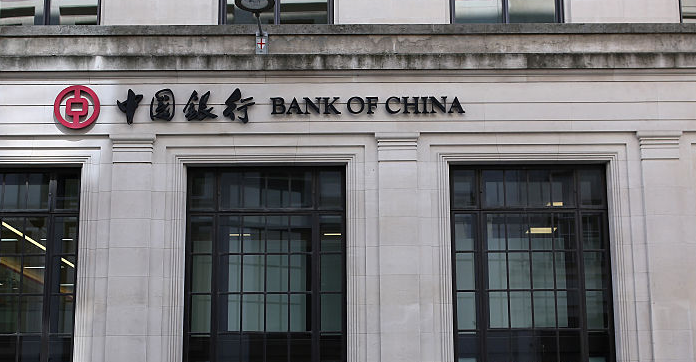Selling bonds in four currencies on the same day around the world is a feat few companies attempt. Bank of China raised $3bn doing so last week — and paid less to do so than it initially feared. Put that together with Monday’s data showing surprisingly strong growth in China, and it would appear as if boom times in the wild east are back. That they are not — given China’s economy is expected to soften slightly from this high point — is unlikely to deter companies’ interest in borrowing overseas, however.
同一天在世界各地以四种货币发售债券,是没有几家公司敢于尝试的壮举。中国银行(Bank of China)上周这么做了,筹集到30亿美元,而花费比该行起初担心的要少。把这件事与周一显示中国增长强劲程度出人意料的数据结合起来看,貌似“狂野东部”的繁荣时代又回来了。这不是事实,因为中国经济预计将从这个高点轻微放缓,但这不太可能打消企业对境外借款的兴趣。
Even as Beijing curbs capital outflows, delaying its ambitions of making the renminbi a truly international currency in the process, Chinese companies’ global interactions continue to increase. Bank of China’s deal is only one of many bond sales every week by mainland companies.
即使北京方面遏制资本流出,在此过程中延后其使人民币成为真正的国际货币的雄心,中国企业的全球互动也在继续增加。中行的交易只是中资公司每周都会发起的多笔债券发售交易之一。
There are many reasons for corporate China to go offshore, not least the price. Borrowing costs outside the mainland, relative to US Treasuries, have fallen to their lowest since the global financial crisis. Onshore interest rates meanwhile have been rising as Beijing fights to curb leverage by raising key bank rates.
中国企业走向境外的原因有很多,不只是价格。相对于美国国债的境外借款成本已跌至自全球金融危机以来的最低水平。与此同时,随着北京方面通过上调关键银行利率来遏制杠杆,在岸利率一直在上涨。
Capital controls are another reason to look overseas, since doing so avoids many of the approvals needed to get onshore funds out. For example, Bank of China’s deal raised funds for its branches in Macau, Dubai, Luxembourg, Sydney and Johannesburg, ready to finance other Chinese activities.
资本管制是企业把目光投向境外的另一个原因,因为这么做可以规避把在岸资金转移到境外所需的众多审批。例如,中行的交易为其澳门、迪拜、约翰内斯堡、悉尼分行和卢森堡子行筹集了资金,准备好为其他中资公司的活动提供资金。
Alibaba’s Ant Financial, meanwhile, is raising $3bn in the loan market to cover its attempt to purchase MoneyGram, the US cash transfer group.
与此同时,阿里巴巴(Alibaba)关联企业蚂蚁金服(Ant Financial)正在贷款市场筹集30亿美元,为其收购美国汇款集团速汇金(MoneyGram)准备弹药。

There is little sign that investors are losing their appetite for Chinese debt. Bank of China’s deal attracted orders worth $9.6bn. Flows into emerging market funds have picked up — and China accounts for two-thirds of Asian issuance. Chinese sales are also helped by compatriots’ previous deals: cashed-up treasury teams need somewhere to park their funds.
没什么迹象表明投资者正在失去对中国债务的胃口。中行的交易吸引了96亿美元的认购。流入新兴市场基金的资金流量已经回升,而中国占亚洲债券发行量的三分之二。中资发行人的发售还得到中资同胞之前交易的帮助:现金充裕的财务团队需要把资金放在某个地方。
Of course, bond markets are known for an ability to come to a crashing halt. A dramatic weakening in Chinese second-quarter data might spook investors, who are often in effect lending dollars against mainland assets. But the investors who bid for three times as many bonds that Bank of China wanted to sell do not seem too worried.
当然,债券市场以其突然崩溃的“本事”闻名。中国第二季度数据如果戏剧性变弱,可能会吓着投资者,他们往往实际上是在接受中国境内资产为抵押品,贷出美元。但是,三倍超额认购中行债券的投资者似乎并不担心。













